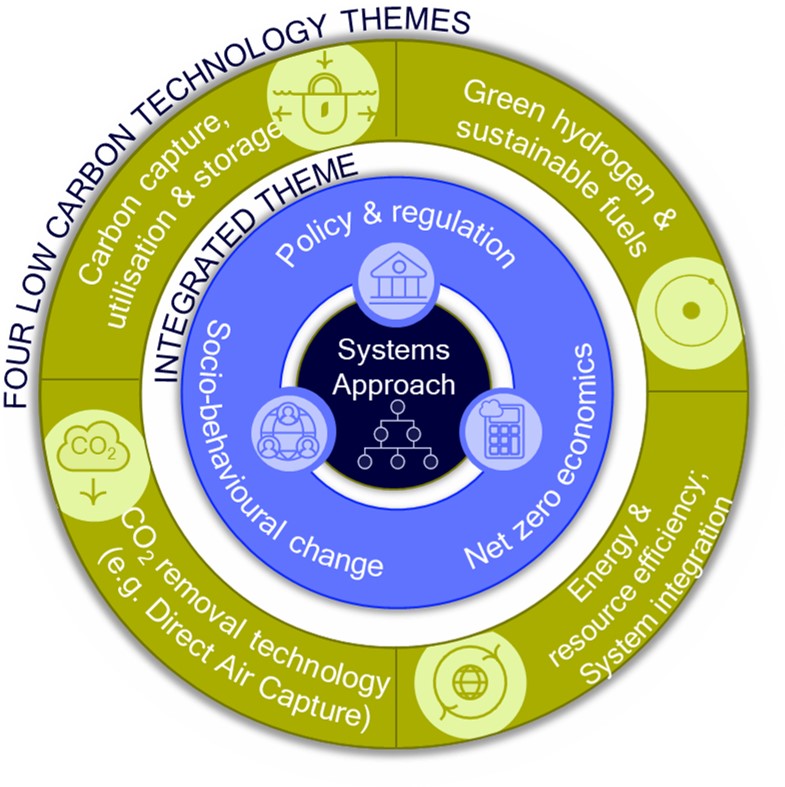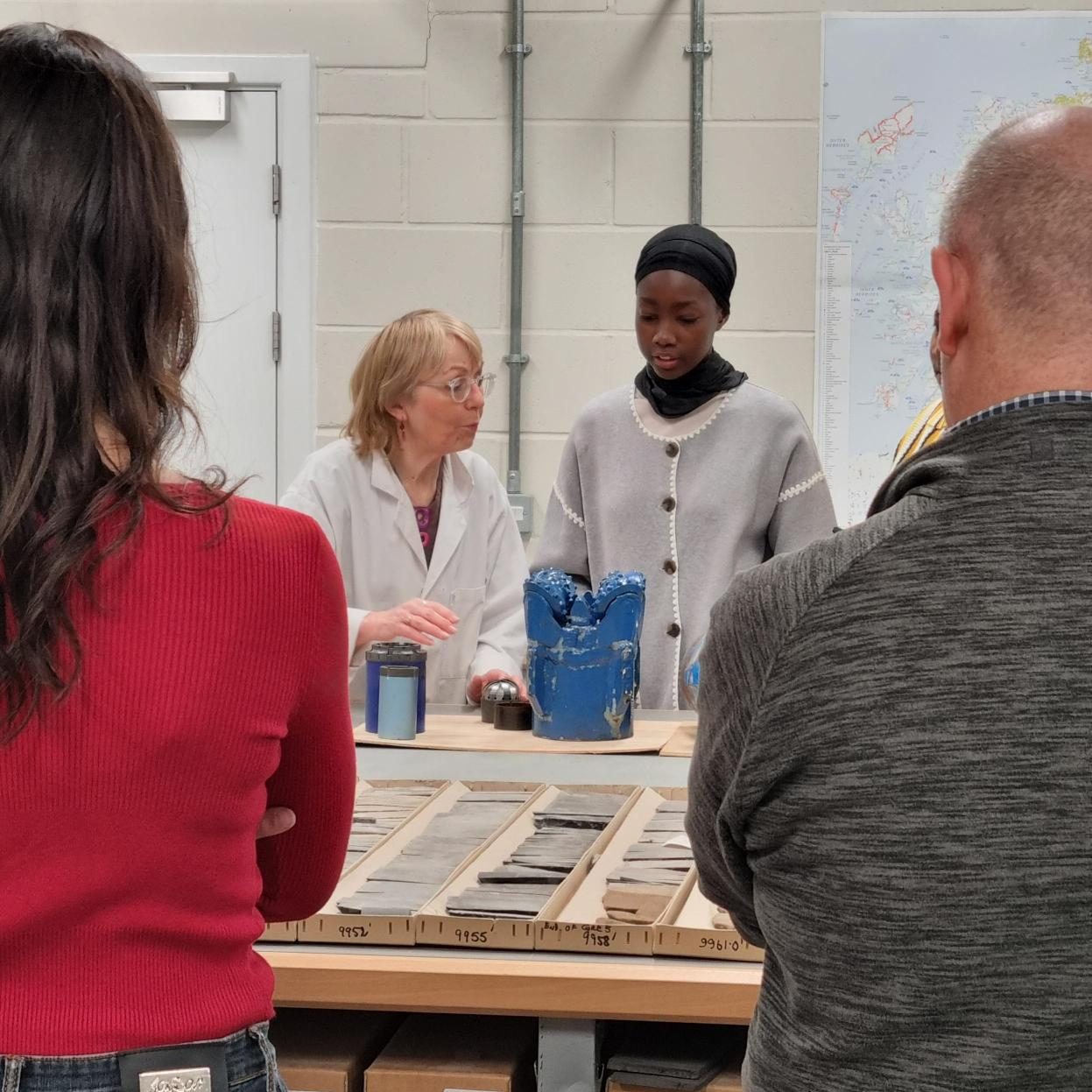
Our CDT students will have the opportunity to visit some of the world’s leading facilities, flex their innovation muscles and work directly with industry partners to help drive the transition to net zero.
Want to become the next global leader in industrial decarbonisation. Find out more below.
Programme Details
The fully-funded, four year PhD programme supports students with an annual stipend of £20,780* tax free and university fees for home students. In addition, all CDT training opportunities are covered by the centre and students will have access to £3000 per annum for their own research costs.
*excluding London weightings (additional £2000 per year)
Research projects
We are offering pioneering research projects that will enable you to explore key technologies that will support UK industry to reach net zero. CDT in Green Industrial Futures has five research themes. Our students will develop expertise in their chosen research field, whilst also understanding cross-thematically how technologies integrate.

Theme Leads: Professor Paul Fennell, Professor Mercedes Maroto-Valer, Professor Sam Krevor
Theme Leads: Professor John Andresen, Professor Yannis Hardalupas. Professor Mohamed Pourkashanian
Theme Leads: Professor Lin Ma, Professor Mijndert Van der Spek
Theme Leads: Professor Marcelle McManus, Professor John Andresen
Theme Leads: Professor Lorraine Whitmarsh, Professor Mijndert Van der Spek
Training Programme
Alongside the four year research project, all students will undertake valuble training to enhance and contextualise their research. There are three elements of the training programme: (1) modular taught course exploring the technical, social and economic aspects of the net zero industrial transition, (2) a Net Zero Leadership Portfolio (NZLP) involving a series of activities and workshops to develop skills sought after by industry partners and boost exposure to different career pathways (e.g. secondments, site visits, guest lectures, skills workshops), (3) an opportunity to visit world-leading facilities and meet industrial stakeholders from around the world.
Flexibility will be offered throughout the programme to meet the individual needs of each student, considering caring responsibilities, disability and other factors. Where international opportunities cannot be carried out, we will strive to provide an alternative arrangement of equal standing. We will ensure sustainability principles are considered when choosing travel modes.

Typical modular training courses
All students will complete 120 credits of postgraduate courses (majority at SCQF Level 11 NQF/QCF Level 7). Normal entry is in October of each year, with core technical courses delivered across Year 1 & 2 as two-week residentials at each of the four university partners.
Year 1
| Semester 1 | Heriot Watt University | Carbon solutions (15 credits) |
| Semester 2 | University of Bath | Whole systems & Transformative Change (15 credits) |
| Semester 3 | Imperial College London | Business Model Innovation and Investor Pitching for Net Zero Carbon Capture Pilot Plant (15 credits) |
Year 2
| Semester 1 | University of Sheffield | Pilot-Scale Facilities Practical Training At TERC (15 credits) |
| Semester 2 | Heriot-Watt University | Industry Challenge Project (15 credits) |
| Semester 2/3 | International opportunities |
Elective courses
In Year 1 & 2, students will complete 15 credits of elective courses from a wide choice from across the partner universities, subject to course availability and timetabling.
Year 3 & 4
The focus of years 3 & 4 will be on your PhD research, however there will be opportunities for professional development including industry secondments, site visits, training workshops and guest lectures.
International Opportunities
These opportunities provide students access and training at the state-of-the-art facilities, and aims to bridge the gap between lab and demonstrator/pilot plant research. These opportunities provide students with extensive exposure to industry-aligned networks, different stakeholder perspectives and contextualise the UK’s global standing in industrial decarbonisation. Our CDT has partnerships with:



